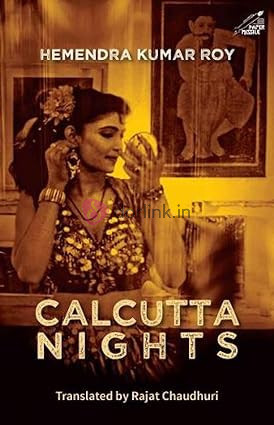Writer : Hemendra Kumar Roy
- Shipping Time : 10 Days
- Policy : Return/Cancellation?
You can return physically damaged products or wrong items delivered within 24 hours with photo/video proof.
Contact Customer Support for return initiation and receive return authorization via email. Securely package for return.
Refunds for eligible returns are processed within 7-10 business days via Bank Transfer.
Order cancellation allowed within 24 hours of placing it. Standard policy not applicable for undamaged/wrong product cases. Detailed info. - Genre : Translated Literature>Short stories and Folktales
- Publication Year : 2020
- ISBN No : 978-93-89136-45-6
- Binding : Flexibound
- Pages : 140
- Weight : 192 gms
- Height x Width x Depth : 8.5x5.5x0.5 Inch
If so, it will be notified
About the Book
Calcutta Nights: A Journey Into the City's Sinister Past
"Every city has two faces—the one it shows in daylight and the one that comes alive in the dark. This is Calcutta after sundown."
Step into the shadows of early 20th-century Calcutta, a city teeming with pleasure and peril, sin and sophistication. Calcutta Nights (Raater Kolkata) is the real-life account of the enigmatic ‘Meghnad Gupta’, the pen name of famed Bengali writer Hemendra Kumar Roy.
First published in 1923 and now translated into English by Rajat Chaudhuri, this book offers a rare, first-hand glimpse into a metropolis shaped by its cosmopolitan mix of cultures, colonial influence, and underworld secrets. Against the politically charged backdrop of British India, Calcutta emerges as a city of debauchery, crime, and decadence, where the Bengali ‘babu’ lifestyle blended with the influences of immigrants, Europeans, and outsiders.
Though written in a different era, some of the author’s perspectives may feel outdated today. Yet, they serve as an unfiltered window into the past, much like Hootum Pyanchar Naksha did for the 19th century. This book is more than a historical memoir—it is a time capsule, revealing the contrasts and complexities of one of India’s most enigmatic cities.

